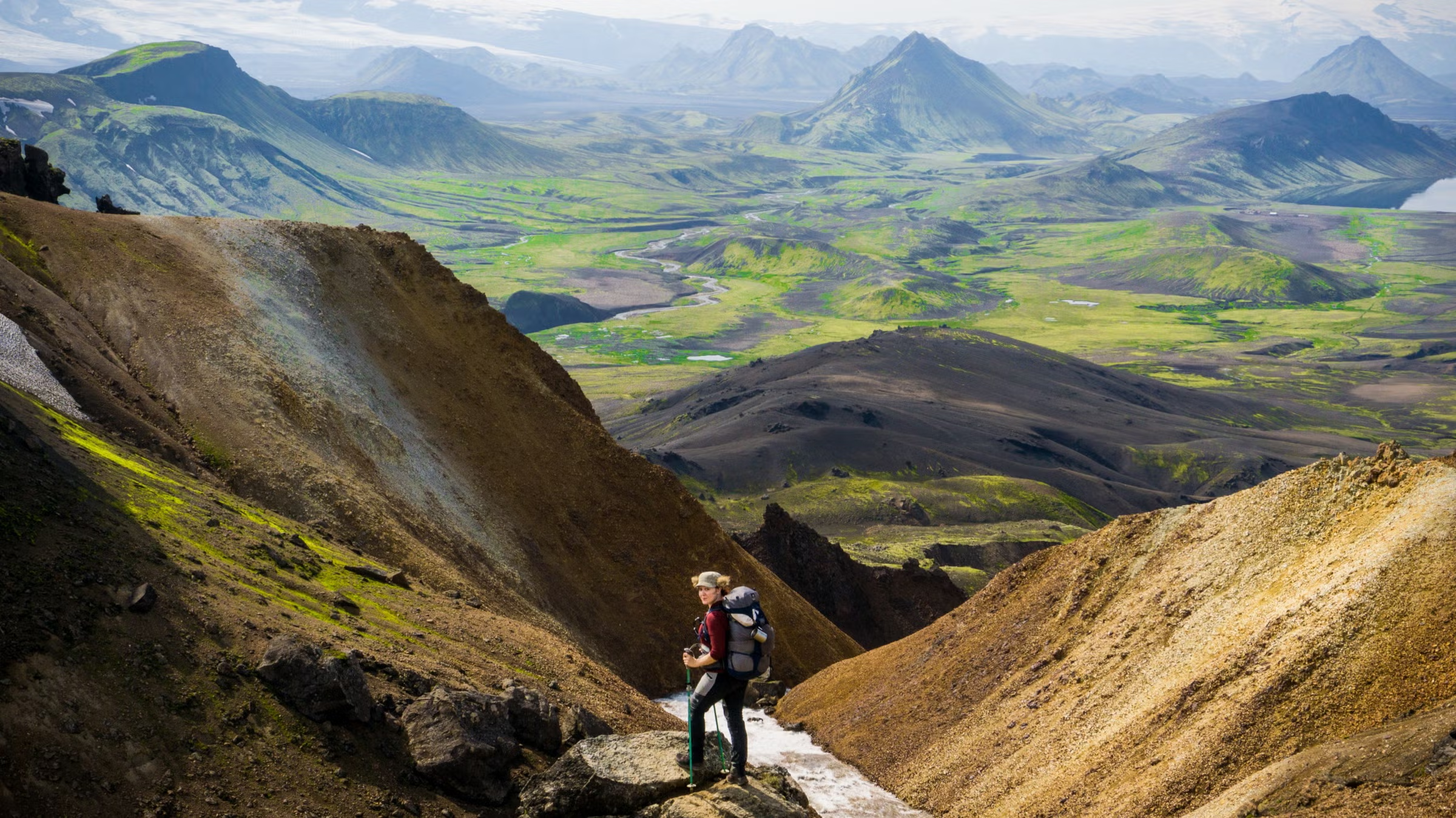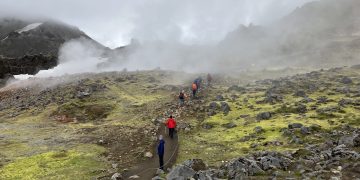Trail hiking is often seen as a simple physical activity—an outdoor exercise designed to get your heart pumping, muscles working, and legs moving across rough terrain. While it undeniably delivers on its physical benefits, the world of trail hiking offers much more than just an opportunity for fitness. As people lace up their boots and hit the trails, they also embark on an experience that touches upon the mental, emotional, social, and even spiritual aspects of life.
In this article, we will explore how trail hiking transcends the realm of physical fitness and becomes an enriching journey for the mind, body, and soul. From mental clarity and emotional healing to fostering deep connections with nature and others, hiking is a multifaceted activity with a broad array of benefits.
The Mind-Body Connection
1. Mental Clarity: A Break from the Hustle and Bustle
Modern life is often a whirlwind of work deadlines, social media notifications, and a constant stream of information. It can be overwhelming, and the mental clutter can feel like an unshakable weight. When you step onto a trail, however, something magical happens. The demands of everyday life are temporarily left behind, and the mind is granted the space it needs to breathe and declutter.
Studies have shown that spending time in nature reduces cognitive fatigue, enhances attention, and boosts creativity. The repetitive nature of walking, combined with the immersive beauty of natural landscapes, helps to restore focus and mental clarity. As you step from one foot to the next, your mind gradually lets go of the noise, refocusing on the present moment, the rhythm of your breath, and the sights and sounds of the wilderness.
For many hikers, the experience can feel like an active form of meditation. Without the distractions of modern life, the mind is free to wander, solve problems, or simply enjoy the quietude. Whether you’re alone or with companions, the outdoors creates an environment conducive to deep thought and mental rejuvenation.
2. Emotional Healing: Connecting with the Natural World
Hiking has a unique way of helping people process emotions, confront personal challenges, and heal from emotional wounds. Being in nature, surrounded by majestic mountains, towering trees, and flowing rivers, often brings a sense of perspective and peace that is hard to replicate in everyday life.
The psychological benefits of spending time in nature are well-documented. Research has shown that hiking can reduce symptoms of anxiety and depression by lowering cortisol levels, the body’s primary stress hormone. Whether you’re walking through a sun-dappled forest or along a rugged mountain ridge, the sights, sounds, and smells of nature can act as a balm for emotional distress.

Furthermore, the solitude that hiking can offer provides a valuable opportunity for introspection and personal growth. People often find that long stretches of solitude on the trail give them time to reflect, work through emotional struggles, and achieve a sense of clarity or closure. For those dealing with grief, trauma, or anxiety, hiking can be a transformative process, fostering healing on a deep emotional level.
Building Physical and Social Strength
3. Strengthening the Body
While trail hiking is undoubtedly a mental and emotional journey, it’s also a rigorous physical workout. Hiking engages multiple muscle groups, providing a full-body workout that helps improve cardiovascular health, muscle tone, and flexibility. Whether you’re scaling steep inclines, trekking across flat meadows, or navigating rocky terrain, hiking is a functional exercise that develops strength, endurance, and balance.
What sets trail hiking apart from other forms of exercise is the dynamic nature of the terrain. Hiking requires adaptability, as the surface beneath your feet constantly shifts. You may be walking on dirt paths, scrambling over rocks, or stepping across streams. This variability activates different muscle groups and challenges your body in ways that gym workouts simply can’t match. The uneven surfaces and elevation changes also improve your stability and coordination.
For those looking to take their fitness to the next level, hiking can be a gateway to more intense physical challenges. Advanced hikers often engage in multi-day hikes, carrying backpacks with supplies and navigating difficult landscapes. Such trips require both physical and mental stamina, pushing the body’s limits and building resilience.
4. Social Connection: Hiking with Others
Trail hiking doesn’t have to be a solitary pursuit. In fact, it can serve as a means of fostering meaningful social connections. Hiking with friends or family creates opportunities for shared experiences and bonding, as you tackle challenges together and share in the beauty of the natural world. Whether you’re pausing to take in the view or having a conversation over a picnic lunch, the shared experience of hiking strengthens relationships in a way that is different from typical social interactions.
For those who enjoy meeting new people, hiking also offers a chance to join hiking groups or participate in guided tours. These groups often attract people from different walks of life who share a common passion for the outdoors. The social nature of group hikes encourages camaraderie and provides a sense of belonging. Sharing a trail with others allows for moments of connection that are organic and authentic, free from the distractions and stressors of daily life.
Additionally, trail hiking is a wonderful way to bond with like-minded people who share similar values, interests, and passions. Whether you’re a novice hiker or an experienced trekker, the mutual love for adventure and nature serves as a foundation for deep, meaningful conversations.
Hiking as a Spiritual Journey
5. Reconnecting with Nature
In our increasingly urbanized world, many people feel disconnected from the natural environment. Hiking offers a powerful way to re-establish a deep connection with the earth. For some, this connection becomes a spiritual practice, helping them rediscover a sense of awe, reverence, and gratitude for the world around them.

The beauty and grandeur of natural landscapes often evoke feelings of humility and wonder. Standing atop a mountain peak or gazing across a vast valley can inspire a sense of awe that transcends words. This profound connection with the earth can be transformative, leading some hikers to adopt sustainable practices, promote environmental conservation, or engage in acts of stewardship for the planet.
Additionally, hiking in nature can be an act of mindfulness and presence. With each step, you engage with the land, the sounds of birds, the rustling of leaves, and the flow of rivers. This conscious presence fosters a sense of harmony and balance, which many consider a form of spiritual renewal.
6. A Path to Inner Peace
For many, hiking serves as a form of personal pilgrimage. Whether through long solo treks or by participating in spiritual hiking retreats, hiking can provide a sacred space for introspection, personal growth, and even transcendence. Some hikers find that they come away from their outdoor adventures feeling renewed, with a sense of peace and clarity that lasts far beyond the trail.
The rhythm of walking in nature, combined with the opportunity for solitude and introspection, allows for the release of stress and negative emotions. As a result, hiking becomes a way to find balance and tranquility in a fast-paced world. For those who are seeking answers or direction in life, nature can provide a powerful, non-verbal source of wisdom.
Hiking: A Lifelong Journey
7. A Continuous Evolution
One of the most captivating aspects of trail hiking is that it is never truly complete. There is always another trail to explore, a new summit to conquer, and an endless variety of landscapes to discover. The beauty of hiking is that it offers a journey that can evolve over time, meeting you where you are in life and guiding you forward.
For beginners, a short and easy trail may provide the initial introduction to the outdoors. Over time, as confidence and experience grow, so too do the ambitions of the hiker. You may begin with local trails, but soon find yourself embarking on cross-country adventures or conquering the world’s most famous treks.
Ultimately, hiking is not just a one-time activity, but a lifelong journey. With each new step, you not only uncover new landscapes but also new aspects of yourself.
Conclusion: A Multifaceted Experience
Trail hiking, at its core, is more than just a way to exercise—it is a transformative experience. Whether it’s improving mental clarity, fostering emotional healing, building physical strength, or connecting with others, hiking offers a rich and diverse array of benefits. It is an activity that can invigorate the body, calm the mind, and nourish the soul.
As we navigate an increasingly fast-paced and digitized world, trail hiking provides a welcome respite—a chance to slow down, reconnect with nature, and rediscover what truly matters. So, next time you lace up your boots and hit the trail, remember that you are embarking on more than just a hike. You’re starting a journey toward personal growth, well-being, and a deeper connection with the world around you.























